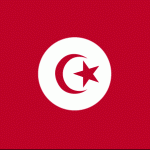 Count me unsurprised by this:
Count me unsurprised by this:
Tunisia’s underground Islamic movement has emerged at the forefront of nationwide protests against its leadership and appears set to emerge as the strongest political force in elections. Al-Nadha is lead by the London-based exile Rachid Ghannouchi who has said that he will return to the country as soon as the threat of life in prison is lifted.
Mr Ghannouchi has the best claims to an electoral following in Tunisia after the disintegration of the ruling party. He has wide core support at the country’s universities and his followers secured 17 per cent in 1989’s election – an unrivalled following in Tunisia’s rigged electoral system.
Senior lieutenants of the fundamentalist leader were yesterday prominent in the thousands strong crowd that demanded the resignation of all ministers – including Prime Minister Mohammed Ghanouchi – tainted by service to ousted dictator, Zine el-Abidine Ben Ali. Sadouk Chourou, a Tunis lawyer, has been seen organising groups within the protest. Ali Laraiedh, the Al-Nadha vice president, said that party activists of the banned movement had been mobilised.
While repeating the group’s message, he gives only guarded signals about the agenda the group would pursue if it tastes power. Mr met with the prime minister during the week to set out Al-Nadha’s demands.
“The people have not yet achieved everything they could have done. We want a government that is able to make a democracy and that means the prime minister must go,” he told The Daily Telegraph. “It is too early to talk about what happens after the election but we will move like other Islamic parties, just that we will be a little more emancipated.”
The operative word, I suspect, is “little”.

Will that emancipation include women’s sufferage?